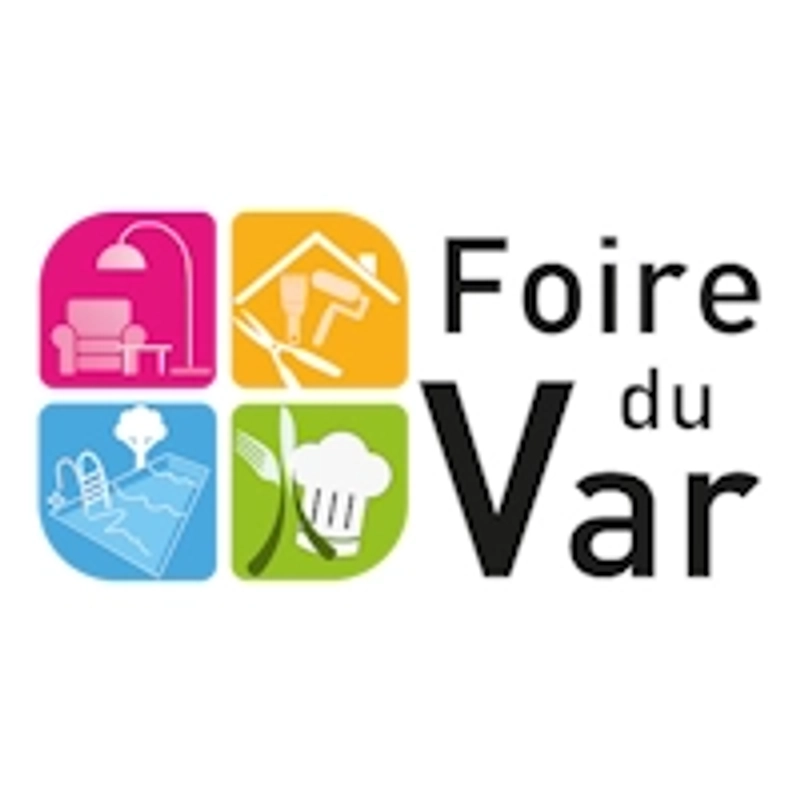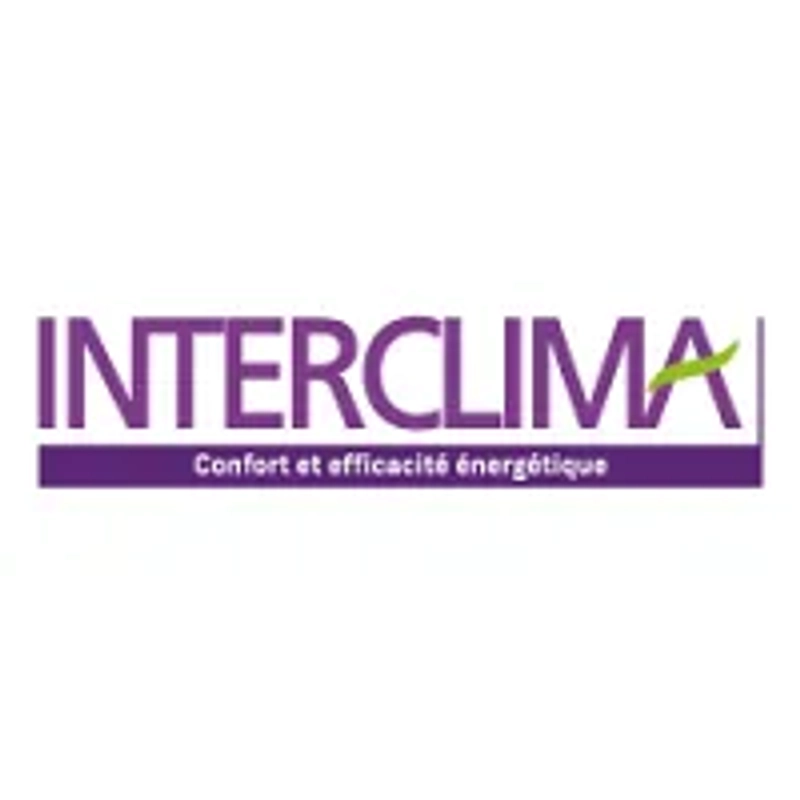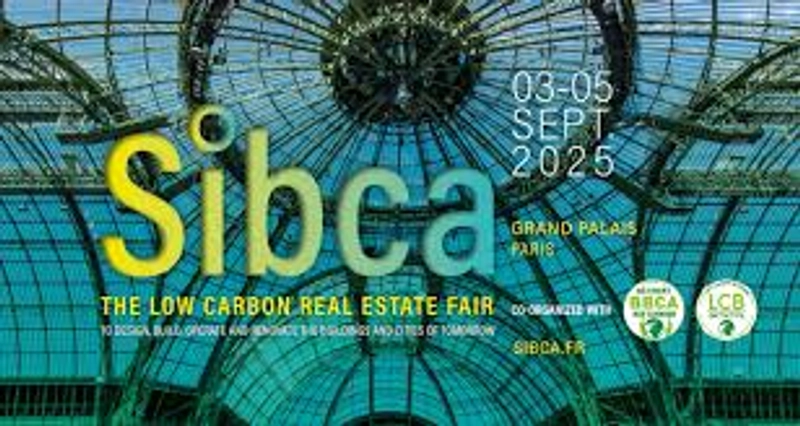Civil Engineering Eventos em France


FOIRE DU VAR
FOIRE DU VAR – A Celebration of Lifestyle, Innovation, and Regional Culture in Fréjus
Every year, the FOIRE DU VAR transforms the beautiful coastal city of Fréjus on the French Riviera into a lively center of business, culture, and entertainment. This multifaceted annual fair, organized by Nice Organisation, is one of the region’s most anticipated events, attracting exhibitors and visitors from across France and beyond.
Held on the expansive and scenic grounds of Base Nature Fréjus, the fair highlights the economic, cultural, and creative diversity of the Var region, from which it takes its name. For several days, the venue becomes a bustling showcase of innovation, craftsmanship, gastronomy, and lifestyle a true reflection of the Mediterranean spirit.
A Multifaceted Event Bridging Industries and Passions
The Foire du Var is not just a trade fair it’s a crossroads where industries meet inspiration. Each edition brings together a rich variety of thematic areas, offering visitors a comprehensive experience that caters to both personal interests and professional needs.
The main thematic zones include:
Pool, Spa & Garden – A haven for outdoor living enthusiasts, featuring everything from luxurious pools and relaxing spas to modern garden furniture, barbecues, and landscaping solutions.
Home & Decoration – Focused on home construction, renovation, interior design, and eco-friendly energy systems, this area offers inspiration for anyone looking to enhance their living space.
Auto, Motorcycle & Motorhome – Dedicated to mobility and innovation, presenting the latest vehicles, motorcycles, and motorhomes alongside eco-friendly mobility solutions.
Wine & Gastronomy – A highlight for every visitor, showcasing regional wines, spirits, and gourmet specialties that celebrate the culinary richness of southern France.
Health, Wellness & Everyday Life – Covering sports, fashion, handicrafts, and healthy living, this section brings together the trends that define modern well-being.
Together, these areas create a dynamic ecosystem of discovery and engagement, uniting exhibitors and audiences around innovation, creativity, and lifestyle.
Where Business Meets Inspiration
The fair’s diversity makes it a unique business platform for companies from multiple industries. It welcomes professionals from the construction, automotive, food and beverage, and wellness sectors, providing them with a valuable opportunity to present products, exchange expertise, and expand networks.
For visitors, the Foire du Var offers far more than just shopping or browsing — it’s an interactive journey through trends and ideas shaping everyday life. Exhibitors benefit from direct customer feedback, while attendees gain first-hand access to new technologies, design inspirations, and sustainable solutions.
Beyond commerce, the fair also emphasizes education and exchange. Many exhibitors host live demonstrations, workshops, and product showcases, turning each visit into an engaging, informative experience.
The Venue – Base Nature Fréjus: A Perfect Setting
The Base Nature Fréjus, located between the Mediterranean Sea and the Esterel mountains, provides an exceptional backdrop for the event. Known for its open spaces, accessibility, and modern infrastructure, it perfectly accommodates the diverse range of exhibits and activities that define the Foire du Var.
Visitors can enjoy the fair’s vibrant atmosphere while also taking in the beauty of the surrounding natural landscape. The combination of commerce and leisure, of business and relaxation, makes the fair’s setting one of its strongest assets.
Whether one comes for professional purposes or simply to enjoy the Mediterranean lifestyle, Base Nature Fréjus ensures a comfortable and memorable experience for all participants.
A Meeting Point for Innovation, Exchange, and Community
At its heart, the Foire du Var is about people connecting entrepreneurs, artists, artisans, and visitors through shared values of creativity, sustainability, and community. It’s a place where innovation is celebrated, where regional culture takes center stage, and where new collaborations often begin.
Among the many attractions are interactive displays, product launches, and live entertainment, which enhance the fair’s lively character. The diversity of participants ensures that every visitor from homeowners and car enthusiasts to wine lovers and wellness seekers finds something of genuine interest.
The Economic and Cultural Significance for the Var Region
The Foire du Var plays a key role in promoting the economic vitality of the Var department. By bringing together local and national businesses, it stimulates regional trade, supports artisans, and highlights the skills and creativity of the area’s industries.
At the same time, the fair strengthens the region’s cultural identity. Through its wine and gastronomy section, it showcases local flavors and traditions; through design and innovation exhibits, it underlines the area’s openness to progress and sustainable living. This balance between heritage and modernity reflects the essence of life on the French Riviera.
More Than a Fair – A Celebration of Life and Diversity
To visit the Foire du Var is to experience the pulse of southern France: its creativity, conviviality, and connection to both nature and innovation. The event goes beyond commerce it’s a celebration of how different sectors of life and business intersect in meaningful, inspiring ways.
By uniting industries as diverse as home improvement, mobility, gastronomy, and wellness under one roof, the fair demonstrates how integrated modern lifestyles have become. It’s a place where ideas grow, partnerships form, and visitors rediscover the joy of shared experiences.
FOIRE DU VAR – The Spirit of the French Riviera in One Event
In conclusion, the Foire du Var is much more than just an exhibition it’s one of the region’s most important cultural and economic events. It celebrates creativity, craftsmanship, and the entrepreneurial spirit that defines the Var region and the broader French Riviera.
Through its engaging themes, inspiring location, and vibrant atmosphere, the fair attracts people from all over the world who come to do business, share knowledge, and enjoy the Mediterranean art of living.
Each edition of the Foire du Var reaffirms its role as a symbol of innovation, diversity, and connection a place where the best of regional tradition meets the promise of the future.


INTERCLIMA
INTERCLIMA Paris: A Hub for Energy-Efficient Building Innovation
The INTERCLIMA exhibition in Paris is recognized as one of Europe’s most important trade fairs in the field of energy-efficient building technology. Held biennially at the Paris Expo Porte de Versailles, it brings together a wide spectrum of professionals, from architects and civil engineers to installers and craftsmen, all focused on sustainable construction practices. Since its inception in 1967, INTERCLIMA has served as a central meeting point for innovation, knowledge transfer, and professional networking in the building and construction sector.
With the growing demand for sustainable and low-carbon solutions, the exhibition has become more than just a showcase of products it is a platform for exchanging ideas, discussing best practices, and exploring the latest technological advances. For many attendees, INTERCLIMA represents an opportunity to stay ahead in a rapidly evolving sector while directly engaging with industry leaders.
Innovations and Technologies in Energy-Efficient Buildings
INTERCLIMA offers insights into a diverse range of technologies and solutions that help improve building performance and energy efficiency. The exhibition covers topics such as:
Renewable energy systems – solar thermal, photovoltaic panels, and geothermal solutions
Heating, ventilation, and air conditioning (HVAC) – advanced systems for thermal comfort and indoor air quality
Water management and regulation – innovative solutions for water control, recycling, and sustainable use
Energy monitoring and automation – smart building solutions, IoT systems, and low-carbon engineering applications
Certified diagnostics and consultancy – environmental labels, energy audits, and sustainable building certifications
Through these offerings, visitors can explore how modern technologies not only reduce energy consumption but also contribute to healthier and more sustainable indoor environments.
A Center for Learning and Professional Development
One of the distinguishing features of INTERCLIMA is its emphasis on education and knowledge transfer. The exhibition collaborates with institutional organizations, associations, and educational institutions to provide a rich program of seminars, workshops, and presentations. Attendees have the opportunity to:
Learn about new trends in energy-efficient construction
Obtain certifications in environmental and low-carbon engineering
Explore training programs for professionals in renewable energy and building automation
Engage with experts on innovative EWC systems and sustainable building strategies
This focus on professional development ensures that INTERCLIMA is not only a marketplace for products but also a venue for growth, learning, and expertise enhancement.
Networking Opportunities and Expert Engagement
INTERCLIMA provides a unique environment for networking and building professional connections. The exhibition brings together manufacturers, suppliers, consultants, and project managers, enabling face-to-face discussions and tailored consultations. Participants can:
Discuss specific project requirements with suppliers and manufacturers
Explore collaborative opportunities with research institutions
Gain insights from industry leaders about current and future market trends
Connect with peers for knowledge exchange and potential partnerships
These interactions help attendees turn innovative ideas into practical applications for their own projects and organizations.
Product Demonstrations and Interactive Exhibits
A highlight of INTERCLIMA is the opportunity to experience live demonstrations and interactive displays. Exhibitors showcase:
Cutting-edge HVAC systems for improved indoor climate
Renewable energy installations for residential and commercial buildings
Digital tools for monitoring and optimizing energy consumption
Smart automation solutions integrating AI and IoT technologies
Visitors can see first-hand how these solutions operate under real conditions, allowing for informed decisions when implementing technologies in their own projects.
Paris Expo Porte de Versailles: The Ideal Venue
The choice of Paris Expo Porte de Versailles enhances the overall experience of INTERCLIMA. Strategically located with excellent transport connections, the venue accommodates large-scale exhibitions, seminars, and networking areas. Its modern infrastructure ensures a smooth and professional experience for both exhibitors and visitors, reinforcing Paris’s status as a hub for international trade events in the construction and energy efficiency sectors.
Driving Sustainability and Innovation
INTERCLIMA goes beyond traditional trade fairs by emphasizing sustainability, technological innovation, and professional development. Through its focus on energy-efficient solutions, renewable energies, and low-carbon engineering, the exhibition empowers professionals to enhance the environmental performance of buildings worldwide. It serves as a central platform for:
Sharing best practices and innovative solutions
Introducing emerging technologies in building energy efficiency
Facilitating partnerships between industry players and research institutions
Promoting the adoption of sustainable construction standards across Europe and beyond
By connecting knowledge, technology, and business opportunities, INTERCLIMA continues to shape the future of energy-efficient building practices.
For anyone involved in architecture, construction, or sustainable building management, INTERCLIMA Paris represents an indispensable event. With its combination of exhibitions, seminars, hands-on demonstrations, and networking opportunities, the fair offers attendees the tools and insights needed to drive innovation and sustainability in their projects. As the construction industry increasingly embraces energy-efficient and low-carbon solutions, INTERCLIMA remains at the forefront of this transformation, inspiring professionals and fostering collaboration across Europe and beyond.


INTERMAT
INTERMAT: Shaping the Future of Construction and Infrastructure
In a world facing rapid urbanization, climate challenges, and digital disruption, the construction industry is under pressure to transform. At the intersection of these global shifts stands INTERMAT, one of the most influential international exhibitions dedicated to construction, civil works, and infrastructure. Held in Paris every three years, INTERMAT brings together innovators, manufacturers, project leaders, and future-focused professionals from across the globe, united by one mission: to build smarter, cleaner, and more resilient futures.
More than just a trade fair, INTERMAT is a platform for transformation. It connects nearly 1,000 exhibitors with tens of thousands of visitors looking for the tools, technologies, and ideas that will redefine the construction landscape.
A Strategic New Sectorization for Better Industry Engagement
Understanding the importance of a meaningful visitor experience, INTERMAT recently restructured its sectorization to offer improved navigation, clearer categorization, and a more streamlined journey through the exhibition. This was not a superficial adjustment it was a strategic rethinking of how construction professionals engage with innovation.
The new structure focuses on:
Sector clarity: Better labeling and organization of exhibitor zones
End-to-end coverage: A holistic view of the entire construction value chain
Innovation visibility: Highlighting future-facing technologies and methods
Visitor efficiency: Faster, more purposeful interactions and discovery
Thematic zones: Including dedicated areas for low-carbon and digital solutions
This change reflects INTERMAT’s deep commitment to meeting the evolving needs of its professional audience, whether they come from earthworks, building trades, infrastructure planning, or environmental engineering.
A Comprehensive Offer for the Entire Construction Ecosystem
Unlike niche events that focus on specific sectors, INTERMAT provides a complete overview of the construction and infrastructure industry. From heavy machinery to digital twin solutions, from concrete systems to sustainable building practices INTERMAT presents an integrated view of where the industry stands, and where it's headed.
Key areas of expertise on display:
Construction equipment and machinery
Lifting, handling, and transportation systems
Civil engineering materials and solutions
Building site tools and worksite safety
New energy systems and low-carbon construction
Digital tools: BIM, AI, IoT, and robotics
Demolition, recycling, and waste management
By showcasing innovations across every phase of the construction lifecycle, INTERMAT helps professionals find efficient, scalable, and sustainable solutions to today’s complex building challenges.
A Meeting Point for the Construction Industry’s Best and Brightest
INTERMAT is not just about products it’s about people and vision. The event attracts professionals from across the global construction and civil works community, including:
Contractors and subcontractors
Infrastructure developers and public works departments
Architects and engineers
Equipment manufacturers and distributors
Governmental and regulatory bodies
Startups and technology providers
Universities and technical training centers
With such a diverse mix, INTERMAT is a crossroads for collaboration, where new partnerships form, ideas exchange, and projects take flight.
A Vision for the Future: Low-Carbon and Digital by Design
Today, two forces are reshaping the built environment: the climate emergency and the digital revolution. INTERMAT recognizes this shift and is doubling down on its role as a driver of both low-carbon solutions and digitalisation in construction.
Key initiatives at INTERMAT include:
Low-carbon innovation hub: Exhibitors showcasing energy-efficient machines, bio-based materials, green cement alternatives, and waste-reducing techniques.
Digital construction zone: Focused on digital twins, project management software, data analytics, robotics, and connected job sites.
Workshops and seminars on regulatory trends, carbon footprint measurement, and sustainable procurement.
Live demonstrations of autonomous vehicles, drone surveys, and AI-driven safety systems.
INTERMAT is helping to redefine what excellence means in construction—not just in terms of performance, but in sustainability, efficiency, and long-term value.
Empowering the Next Generation of Builders
The construction industry is changing and so is its workforce. INTERMAT acknowledges the importance of attracting and empowering young professionals, many of whom are deeply committed to environmental issues, technological innovation, and inclusive development.
To support this, INTERMAT is investing in:
Youth-focused programming
Start-up challenges and innovation awards
University partnerships and career networking events
Training demonstrations for new technologies
Mentorship and career guidance zones
By placing young professionals at the center of the event, INTERMAT becomes more than a business platform it becomes a launchpad for the next generation of construction leaders.
Why INTERMAT Remains Essential to the Global Construction Industry
INTERMAT’s significance lies in its ability to evolve with the industry. As construction faces tighter regulations, higher stakeholder expectations, and rapid technological change, the need for a comprehensive, future-focused exhibition has never been more critical.
Why professionals choose INTERMAT:
Depth and breadth of exhibitors and products
Clear, purposeful sectorization for productive visits
Access to future-focused innovations
Opportunities for learning, certification, and training
Direct interaction with experts, policymakers, and suppliers
Live demos and hands-on experiences
Global networking opportunities
Whether you’re a large contractor looking for new fleet equipment, or a city planner exploring smart infrastructure, INTERMAT delivers unmatched value.
Building a Smarter, Greener Tomorrow Together
At its core, INTERMAT represents a simple but powerful idea: that the future of construction will be built through collaboration, innovation, and sustainability. As the world grapples with urbanization, climate change, and digital disruption, INTERMAT offers a critical space to rethink how we build from blueprint to execution.
In bringing together the full ecosystem of the construction and civil works sector, INTERMAT becomes more than a show. It becomes a movement toward lower carbon, smarter infrastructure, better cities, and stronger communities.


SIMI Paris
SIMI Paris – A Golden Thread Through the Future of Real Estate
Every year, thousands of real estate professionals gather at Paris Expo Porte de Versailles for what has become one of the most significant events in the French property market: SIMI Paris. More than just a trade show, SIMI is a BtoB real estate event that serves as a cornerstone for strategic networking, thought leadership, and collaborative visioning. From investors and developers to architects and public sector stakeholders, the event draws the full ecosystem of real estate actors into one dynamic, interconnected space.
But what makes SIMI truly stand out is its evolving focus not only on transactions and opportunities but also on sustainability, resilience, and innovation. In this regard, SIMI mirrors the Japanese philosophy of Kintsugi, the art of repairing broken pottery with gold. Rather than hiding imperfections, Kintsugi embraces them, turning flaws into features. The metaphor feels particularly fitting in today’s built environment, where real estate must reckon with its past environmental impact while reimagining its future.
A BtoB Platform That Builds More Than Deals
At its core, SIMI Paris is a business-to-business platform, but its purpose extends well beyond networking. The event is a living forum for sharing expertise, confronting challenges, and co-designing the cities of tomorrow. Over the course of several days, attendees have access to:
Panel discussions and keynote conferences
Exhibitions from leading real estate companies and startups
Workshops on emerging technologies and ESG frameworks
Opportunities to meet and collaborate with public authorities
Each of these elements serves to strengthen ties between sectors that often operate in silos—bridging the gap between private capital and public policy, between visionary architecture and practical urban planning.
The Art of Resilience in Urban Development
As cities face increasing pressure from climate change, demographic shifts, and economic volatility, resilience has become a watchword in modern real estate. SIMI Paris directly addresses this, positioning resilience not as a reactive measure, but as a core design principle.
Resilience in real estate is explored through various dimensions at SIMI:
Green and energy-efficient construction: From low-carbon materials to passive energy systems, the future is being built with environmental responsibility in mind.
Adaptability in urban planning: Flexible-use buildings, mixed-function neighborhoods, and modular construction methods are gaining traction.
Financial resilience: Investment panels discuss risk management and long-term value creation, particularly in light of market uncertainties.
Social cohesion: Projects that foster inclusion, affordable housing, and public space accessibility are celebrated for their long-term societal impact.
This commitment to resilience makes SIMI more than a showcase of current trends—it becomes a toolkit for the future, equipping stakeholders with the insights and partnerships needed to evolve with confidence.
Sustainability as a Common Language
If there is a single unifying theme that threads through every hall, talk, and exhibition at SIMI, it is the unwavering focus on sustainability. The industry no longer treats sustainability as a “nice-to-have”; it's a business imperative.
From the earliest project stages site selection, materials procurement, and energy modeling to the operational lifespan of buildings, sustainability now plays a central role in both design and valuation.
SIMI Paris encourages this shift by:
Highlighting green certifications and regulatory frameworks (like HQE, BREEAM, BBCA)
Promoting circular economy practices in construction and renovation
Showcasing carbon-neutral urban districts as models for replication
Encouraging transparency through ESG performance tracking
This isn't just about ticking compliance boxes. It's about embracing purpose-driven real estate an industry that can both create economic value and enhance ecological well-being.
When Architecture Meets Philosophy: The Kintsugi Connection
Perhaps the most poetic layer of SIMI 2025 is the way it channels the spirit of Kintsugi into the broader conversation. Just as broken ceramics are repaired with gold to create something even more beautiful than before, the real estate sector is learning to highlight its cracks economic downturns, ecological oversights, social gaps and transform them into features of strength.
Real estate professionals are increasingly viewing:
Older buildings as opportunities, not liabilities
Urban brownfields as canvases for innovation
Past planning mistakes as lessons for more inclusive, livable cities
By embracing imperfection and evolution, the industry takes on a new role not just as builders, but as custodians of human experience and environmental balance. This philosophy deeply resonates at SIMI, both visually and ideologically, guiding how projects are discussed, critiqued, and celebrated.
Strategic Themes and Sectoral Insights
SIMI Paris is not a monolith. The fair's content is divided into strategic themes, each focused on a sector or challenge area within the broader real estate ecosystem. Some of the key domains represented at the event include:
Office and commercial real estate
Residential development and affordable housing
Logistics and data centers
Mixed-use developments
Infrastructure and public services
Within each of these domains, SIMI provides an in-depth look at market trends, technological shifts, and regulatory changes, ensuring that every stakeholder no matter their specialty leaves with actionable insights.
Engaging the Public Sector: Cities as Partners
One of SIMI Paris's most unique aspects is its active engagement with public decision-makers. Unlike many real estate shows that focus exclusively on private enterprise, SIMI recognizes that city governments and local authorities are key partners in sustainable urban transformation.
Throughout the event, mayors, urban strategists, and policy advisors are not only present but actively shaping the dialogue. They offer critical perspectives on zoning laws, infrastructure investment, and the social role of the built environment.
This synergy between public and private stakeholders results in:
Better-aligned urban projects
Faster project approvals and smoother collaboration
More meaningful, people-centered development outcomes
What Attendees Can Expect at SIMI Paris
Whether you're a first-time visitor or a returning participant, SIMI offers an expansive and enriching agenda. Attendees can expect:
Over 400 exhibitors showcasing projects, services, and technologies
Dozens of roundtables and keynote addresses by industry leaders
Networking areas designed for structured B2B meetings
Access to exclusive reports and trend forecasts
A forward-looking awards ceremony celebrating innovation and impact
The City Reimagined
As the curtain falls on another edition of SIMI Paris, the overarching message is clear: the future of real estate lies not in expansion for expansion’s sake, but in thoughtful, sustainable, and resilient growth. Just like in Kintsugi, every crack in our cities every challenge, oversight, or missed opportunity is a chance to rebuild with deeper wisdom and greater intention.
SIMI Paris is not just a mirror of the industry it is a compass, pointing toward a real estate sector that values regeneration over replication, collaboration over competition, and meaning over mere metrics.


Rocalia
Rocalia: The Premier Fair for Natural Stone Professionals in France
Every two years, in the heart of France, professionals from the natural stone industry gather to celebrate innovation, tradition, and craftsmanship at the Rocalia fair. Dedicated exclusively to the world of natural stone, Rocalia serves as the only major trade show in France that brings together stone experts, designers, architects, and builders who share a passion for this timeless material.
Held simultaneously with Paysalia, the renowned garden and landscaping fair, Rocalia is organized by GL Events Exhibitions Operations in collaboration with Pierre Actual, a leading publication in the field. Together, these two events form a powerful professional meeting point for the intersecting worlds of building, landscaping, and ornamental rock applications.
Who Should Attend Rocalia? A Meeting Place for Stone Visionaries
Rocalia is not for the casual observer. This event was created specifically for those who work with stone in meaningful, creative, or structural ways. Whether you are crafting intricate carvings, designing facades, restoring historical monuments, or integrating natural stone into modern interior Rocalia speaks your language.
The fair caters to a wide range of professions, including:
Quarry operators and stone producers
Architects and urban planners
Restoration experts and conservators
Stone masons and installers
Landscape designers and garden architects
Interior designers using natural stone for luxury finishes
Students and educators in stone-related disciplines
For those involved in specifying, sourcing, working with, or showcasing natural stone in construction, design, or restoration, Rocalia is the professional epicenter.
A Rich and Targeted Exhibition Experience
In the most recent edition, nearly 30,000 visitors came to explore what 148 exhibitors had to offer. The products and services on display span the full breadth of the natural stone industry, from raw materials to finished elements, from tools and machinery to restoration techniques.
Exhibitors present solutions and innovations across sectors such as:
Ornamental and construction stone
Machinery and tooling for stone cutting and processing
Stone finishes, treatments, and maintenance
Training and recruitment in the stone sector
Software and digital tools for stone design and production
Rocalia Forum: Shaping the Future of Natural Stone
Beyond the exhibition floor, the Rocalia Forum provides a platform for knowledge exchange and future-forward thinking. This is where experts gather for conferences, debates, and round tables on the current challenges and opportunities in the stone industry.
Topics typically span from sustainability and responsible quarrying, to technological advances in processing, to preservation of heritage sites using local materials. It is a unique moment when tradition and innovation sit at the same table, building bridges between centuries-old craftsmanship and contemporary demands.
Celebrating Excellence in Stone Construction
One of the most anticipated moments of the fair is the Natural Stone Award, titled "Construire en Pierre Naturelle au XXIe siècle" (Building in Natural Stone in the 21st Century). This prestigious recognition is co-organized by SNROC (the French Natural Stone Association) and Pierre Actual magazine.
It rewards recently completed architectural and construction projects that feature outstanding use of natural French stone. The award does more than recognize beauty it celebrates ingenuity, sustainability, and the ability of stone to endure and inspire in modern architecture.
Past winners have included projects such as:
Public buildings with bold stone facades
Restored monuments using traditional French stone
Contemporary homes that blend ancient material with modern design
Landscape architecture that redefines natural integration
The award not only showcases talent but also promotes the economic and cultural value of regional stone.
Supporting the Future: Training and Career Opportunities
Another major feature of Rocalia is the Village of Jobs and Training, which highlights the wealth of career paths available within the stone sector. This area provides:
Demonstrations of stone-cutting and carving techniques
Information on educational programs and apprenticeships
Networking with institutions and schools specializing in stone crafts
With increasing interest from young people in artisan trades and sustainable building practices, the Village is a space where skills are passed from master to apprentice, ensuring the continuity of a noble craft.
Going Digital: Enhancing Networking and Engagement
Understanding that trade fairs today extend beyond physical space, Rocalia has invested in a digital platform and companion app to allow visitors and exhibitors to stay connected during and long after the event. These tools are designed to:
Help professionals find and connect with relevant contacts
Enable scheduling of one-on-one meetings
Provide access to session recordings and speaker materials
Facilitate real-time updates and product showcases
In a post-pandemic world, these digital extensions make Rocalia more than a three-day event it becomes a year-round community hub.
A Timeless Material for a Sustainable Future
Natural stone, often perceived as a material of the past, is increasingly recognized as a sustainable, long-lasting, and locally sourced alternative in contemporary building. Its ability to age beautifully, endure harsh environments, and require minimal maintenance makes it ideal for an eco-conscious era.
Rocalia celebrates this duality stone as both heritage and innovation. Whether used in bold contemporary forms or as part of historical restoration, it remains a core material in expressing human creativity and structural integrity.
Why Rocalia is More Relevant Than Ever
As environmental pressures reshape construction practices and architectural philosophies, natural stone emerges as a material of the future not just the past. Rocalia stands at this critical junction, offering a place to explore, celebrate, and evolve the role of stone in our built world.
Whether you are preserving a centuries-old cathedral, designing a minimalist stone kitchen, or pioneering digital fabrication in stone, Rocalia welcomes you. It’s where experience meets curiosity, and where the soul of stone finds its next generation of storytellers.


ARTIBAT
ARTIBAT: Western France’s Premier Building and Construction Technology Trade Fair
Every two years, in the heart of Western France, the city of Rennes becomes a magnet for thousands of professionals working in the construction and public works sectors. This transformation is thanks to ARTIBAT, a landmark event that has, for over 30 years, earned its reputation as one of the leading construction trade shows in France.
Organized by CAPEB Pays de la Loire, a respected voice in France’s craft and construction business landscape, ARTIBAT is more than just a regional fair. It’s a national reference point for builders, innovators, manufacturers, and decision-makers looking to explore new materials, sustainable solutions, and the future of building technologies.
Held biennially in October, ARTIBAT brings together 1,000+ exhibitors across 65,000 m² of exhibition space, and welcomes nearly 40,000 professional visitors all eager to discover practical, innovative solutions aligned with today’s regulatory and technical challenges in the construction world.
A Construction Trade Show Rooted in Regional Strength
Unlike other fairs that aim for international size without focus, ARTIBAT thrives because it builds deeply within its region while radiating national influence. Western France, particularly the Pays de la Loire and Brittany regions, has long been home to dynamic building sectors, characterized by SMEs, skilled craftsmen, general contractors, and engineering firms.
This strong regional identity gives ARTIBAT a distinct character close to the ground, pragmatic, and always in touch with the real needs of construction professionals.
Whether you're a plumber, roofer, facade installer, designer, or urban planning specialist, ARTIBAT offers a relevant, action-oriented platform to learn, compare, and connect.
A Unique B2B Platform for Building Industry Professionals
The success of ARTIBAT lies in its business-to-business (B2B) format. The event is built entirely around creating meaningful commercial exchanges between suppliers and active professionals.
What ARTIBAT offers its attendees:
Direct access to industry-leading brands and manufacturers
Opportunities to test new products and equipment
Exclusive previews of technical innovations and smart materials
Networking with builders, developers, architects, and craftsmen
Tailored information about sector-specific trends and standards
Every edition is carefully curated to ensure that exhibitors meet relevant buyers, and that professionals from every construction field can find targeted solutions.
Key Industry Sectors Represented at ARTIBAT
ARTIBAT brings the full spectrum of the construction industry under one roof. It’s structured in a way that allows visitors to easily explore their field while also discovering adjacent innovations they might not otherwise encounter.
The event includes products and services in:
Structural Work and Masonry
Carpentry and Roofing
Heating, Ventilation, and Air Conditioning (HVAC)
Electricity and Home Automation
Plumbing and Water Management
Facade Systems and Cladding
Eco-construction and Energy Efficiency
Tools, Equipment, Machinery, and Transport
Interior Design, Finishes, and Insulation
Digital Construction Technologies and Smart Systems
The vastness and diversity of sectors make ARTIBAT a crossroads of technical expertise, where traditional craftsmanship meets modern technology.
The Numbers That Define ARTIBAT's Impact
Since its early editions, ARTIBAT has seen consistent growth, both in size and significance. Its role as a strategic connector between solution providers and industry actors is now undeniable.
ARTIBAT at a glance:
65,000 m² of exhibition space
1,000+ exhibitors from France and abroad
40,000 professional visitors in three days
30+ press and media partners
Dozens of product launches and demos
Representation from every construction-related profession
This kind of scale and specialization is rarely matched in Western France, giving ARTIBAT its position as a national hub for innovation in the building trades.
An Event Focused on Innovation, Efficiency, and Exchange
Every edition of ARTIBAT is an opportunity to witness the next wave of construction solutions. Whether it’s a more efficient insulation panel, a connected building automation system, or a modular facade with energy recovery capabilities, innovation is always at the forefront.
Beyond the products themselves, what sets ARTIBAT apart is the quality of dialogue it fosters. Exhibitors don’t just showcase they interact. Visitors don’t just browse they test, compare, and decide.
Some recurring highlights at the event include:
Live product demonstrations
Hands-on technical workshops
Debates and roundtables on current sectoral issues
Innovation-themed zones highlighting startups and R&D efforts
Sustainable construction tracks, responding to environmental imperatives
Who Attends ARTIBAT?
One of the reasons ARTIBAT remains relevant and respected is its ability to attract a well-targeted professional audience. This ensures high-quality interaction, strong leads, and real business outcomes.
ARTIBAT visitors typically include:
Craftsmen and Artisans from plumbers to carpenters
Contractors and Construction Firms
Architects, Designers, and Engineers
Municipal Decision-Makers and Urban Planners
Distributors and Retailers in Building Materials
Project Developers and Real Estate Professionals
Public Works Operators and Renovation Specialists
This broad but targeted participation makes ARTIBAT a 360-degree mirror of the current construction market.
ARTIBAT and the Press: A Media Powerhouse
With more than 30 professional press partners, ARTIBAT enjoys exceptional visibility in the construction media landscape. Specialized publications and websites cover:
New product launches
Tech breakthroughs
Exhibitor interviews
Regulatory updates
Market analyses
This media presence reinforces the event’s status as a reference point in the industry and provides valuable exposure for brands launching new solutions.
Why ARTIBAT 2025 Will Be More Relevant Than Ever
In a time when climate goals, urban density, digital disruption, and labor shortages are reshaping construction, events like ARTIBAT offer a much-needed reality check.
It's where professionals come not only to buy and sell, but also to:
Reflect on the future of their profession
Discover smarter ways of building
Find practical solutions for site management
Learn how to adapt to new regulations
Prepare for the next big shift in energy and materials
As construction moves from traditional models to circular, data-informed, and decarbonized processes, ARTIBAT helps build that bridge literally and figuratively.
Final Thoughts: ARTIBAT as the Beating Heart of Regional and National Construction
For over three decades, ARTIBAT has remained deeply rooted in the reality of builders, while constantly embracing change. Its strength lies in its balance: regional anchoring with national reach, practicality with innovation, craftsmanship with technology.
Whether you're a young contractor or a large manufacturer, an artisan or a digital startup, ARTIBAT is where the industry meets to grow.


BTP Expo
BTP Expo: Building Stronger Business Networks in a Friendly, Productive Environment
The BTP Expo has become a pivotal event for professionals in the construction, public works, and infrastructure sectors. Known for its user-friendly atmosphere and practical focus, BTP Expo isn’t just another trade show it’s a platform for real business growth, professional connection, and knowledge sharing.
Held annually in the heart of a thriving regional hub, the event creates a unique blend of business development, supply chain optimization, and collaborative learning. Whether you're a contractor, supplier, architect, or local stakeholder, BTP Expo is where the region’s key players come together to source, network, and grow.
An Exhibition Space That Prioritizes People and Productivity
Unlike traditional trade fairs that focus solely on showcasing products, BTP Expo offers an interactive exhibition space designed for dialogue and meaningful business relationships. The layout is open, accessible, and intentionally designed to foster conversation between attendees and exhibitors.
The environment encourages face-to-face connection, allowing companies to showcase their latest innovations, services, and materials while engaging directly with their target audiences in a relaxed but focused atmosphere.
Why the BTP Expo Exhibition Space Works:
User-friendly layout makes navigation simple and intuitive
Open networking zones for impromptu business discussions
Product display areas that highlight innovation and quality
Local and regional business presence, making sourcing easier
On-site business services to support exhibitor and attendee needs
By prioritizing interaction over display, BTP Expo transforms the traditional concept of a construction fair into a business ecosystem where ideas and partnerships take center stage.
Sourcing Sessions: Connecting Local Suppliers with Major Players
One of the most valued aspects of BTP Expo is its dedicated sourcing time. More than just a transactional opportunity, this segment of the event creates a structured but dynamic space where large principals, contractors, and public institutions meet with qualified local suppliers and service providers.
This initiative supports regional economic development, ensuring that large projects and investments have access to the best local talent and resources.
Sourcing Benefits for All Participants:
For principals and contractors:
Discover new suppliers in your region
Diversify your supply chain and lower costs
Build trust through local partnerships
For local businesses and service providers:
Access large-scale buyers and contracts
Showcase your unique offerings
Establish long-term commercial relationships
The sourcing sessions are more than just meetings they’re strategic matchmaking opportunities that can reshape supply chains and improve project outcomes.
Rich Information Content: Conferences and Round Tables That Inspire
Beyond business networking, BTP Expo is a knowledge hub. Attendees benefit from a full day of curated content, including expert-led conferences and interactive round tables. These sessions are designed to share insights, spark discussion, and deliver real value to professionals navigating the complexities of modern construction and infrastructure.
Common Topics Covered:
Urban planning and sustainable development
Innovations in construction technology
Public works funding and procurement policies
Workforce challenges and solutions
Regulatory updates and compliance issues
Energy efficiency and eco-construction trends
Industry experts, policymakers, and business leaders offer not just presentations, but opportunities to engage, question, and debate the future of the sector.
A Friendly Atmosphere with Professional Impact
What makes BTP Expo truly unique is its balanced atmosphere. The event is simultaneously welcoming and professional, creating a space where people feel comfortable doing business. There’s a noticeable absence of the high-pressure sales environment typical of some larger expos. Instead, conversations are organic, solutions-driven, and collaborative.
Whether you're a start-up exhibiting for the first time or a seasoned public-sector partner, the tone of the event makes it easy to engage and explore new partnerships.
Who Should Attend BTP Expo?
The diversity of attendees reflects the broad scope of the construction and public works industry. The event is relevant for any professional looking to grow their network, discover new solutions, or take part in shaping the regional economy.
Attendee Profile Includes:
Construction companies and subcontractors
Public works officials and procurement managers
Material and equipment suppliers
Architects and urban planners
Project managers and site engineers
Environmental and infrastructure consultants
Local government and institutional investors
Five Reasons You Shouldn’t Miss the Next Edition
Still wondering whether BTP Expo belongs on your calendar? Here's why you should consider attending or exhibiting:
Generate high-quality business leads in your sector
Engage directly with decision-makers and project owners
Find reliable, local partners and suppliers
Stay informed about the latest trends and regulations
Be part of a regional community driving economic growth
The event offers a blend of business opportunity, innovation, and strategic insight that few others in the construction industry can match at the regional level.
Building More Than Infrastructure
At its heart, BTP Expo is about connection connecting people, businesses, ideas, and opportunities. In doing so, it supports not just infrastructure development, but also local economies, sustainability goals, and professional collaboration.
By participating in BTP Expo, whether as an exhibitor, speaker, or attendee, you’re not just building better systems you’re helping to build a stronger future for the construction and public works industry in your region.


Renodays
Renodays: The Forum for Comprehensive and Efficient Building Renovation
Renodays is a pivotal forum held in Paris, gathering professionals from the construction and real estate sectors, institutions, and local authorities. Over the course of two focused days, the event mobilizes these stakeholders around a shared mission: to effectively meet national targets for energy renovation of buildings. In the face of urgent climate challenges and rising energy costs, Renodays addresses the need for efficient and sustainable building renovation solutions.
The forum brings together a wide spectrum of experts—from architects, contractors, energy specialists, and policymakers to developers and public sector representatives—creating a collaborative space where ideas, innovations, and strategies converge to accelerate the renovation process.
Addressing National Energy Renovation Goals Through Collaboration
Energy renovation is no longer optional but an essential part of national and international commitments toward climate action. Renodays focuses on this critical challenge by enabling a concerted response through cooperation among diverse actors. The event highlights the importance of:
Sharing best practices that improve the quality and sustainability of renovations
Integrating innovative technologies and materials that boost energy efficiency and reduce carbon footprints
Developing and clarifying regulatory frameworks to facilitate renovation projects
Creating financial incentives and models to support homeowners, businesses, and public entities in retrofitting efforts
This holistic approach ensures that renovation projects are not only environmentally sound but also economically viable and scalable.
Core Activities and Offerings at Renodays
Renodays provides an extensive program to meet the needs of professionals and authorities involved in renovation. The event is structured to include:
Expert conferences and panels: Thought leaders share insights on technical advancements, policy updates, and market trends related to building renovation and energy efficiency.
Interactive workshops: These sessions dive deep into practical challenges such as insulation techniques, heating system upgrades, and eco-material integration, empowering attendees with hands-on knowledge.
Exhibition spaces: Featuring innovative products, smart technologies, and eco-friendly materials, the exhibitions allow visitors to explore cutting-edge solutions that can transform renovation projects.
Networking opportunities: The forum encourages meaningful connections between construction companies, real estate developers, energy consultants, and government agencies, facilitating partnerships that drive large-scale renovations.
Why Renodays is Essential for the Construction and Real Estate Sectors
In a sector often challenged by complexity and fragmentation, Renodays serves as a central hub that aligns key players around shared goals. For professionals and institutions, the forum offers:
Access to up-to-date regulatory information critical for compliance and strategic planning
Exposure to innovative materials and technologies that can significantly enhance building performance
Opportunities to connect with decision-makers and potential collaborators to expand business and project portfolios
Insights from successful case studies demonstrating the benefits and outcomes of energy renovation efforts
Such benefits help bridge the gap between policy ambitions and on-the-ground renovation practices, accelerating the transition toward energy-efficient buildings.
Renodays’ Role in Shaping the Future of Sustainable Renovation
As energy efficiency becomes a cornerstone of environmental policy, Renodays contributes significantly to shaping the future of renovation. The forum's collaborative nature fosters a knowledge-sharing culture and encourages the adoption of innovative solutions that optimize the life cycle of buildings.
Key focus areas at the event often include:
Energy conservation technologies such as advanced insulation, smart thermostats, and renewable energy integration
Eco-friendly materials that improve indoor air quality and durability while reducing environmental impact
Lifecycle optimization techniques that enhance building longevity and adaptability
Recycling and circular economy practices within the construction and renovation sectors
Through these themes, Renodays promotes a vision of renovation that is multifunctional, sustainable, and aligned with evolving societal values and regulatory frameworks.
Renodays as a Catalyst for National Energy Renovation Success
By uniting the construction and real estate community along with government authorities and institutions, Renodays drives momentum toward achieving ambitious national energy renovation targets. The forum not only highlights challenges but also presents actionable solutions and fosters partnerships essential for lasting impact.
For anyone involved in the built environment—from project developers and contractors to policymakers and financial institutions—Renodays offers invaluable resources and connections. It remains a vital annual gathering that accelerates the path to greener, smarter, and more efficient building renovations across France and beyond.


Sibca - The Low Carbon Real Estate show
Sibca – The Low Carbon Real Estate Show: Where Innovation Meets Responsibility
The built environment is one of the largest contributors to global carbon emissions, and as the climate crisis deepens, the pressure on the real estate sector to adapt has never been more urgent. SIBCA – The Low Carbon Real Estate Show emerges as a pivotal response to this challenge, gathering the brightest minds and most dedicated professionals in real estate under one roof. Organized by BBCA Association and France Conventions, the event offers a vital platform for accelerating the transition toward more sustainable, low-carbon urban development.
Held annually in France, SIBCA is more than just a fair it is a hub of innovation, dialogue, and transformative thinking. With a rich agenda of keynotes, debates, thematic sessions, and award ceremonies, the event focuses on building momentum for low-carbon buildings and districts, featuring best practices, financing strategies, and technological breakthroughs.
A Platform Built on Purpose and Collaboration
What makes SIBCA truly stand out among real estate exhibitions is its strong sense of mission. It doesn't simply showcase projects or promote products; it cultivates a shared vision—to drastically reduce carbon emissions in the real estate sector and build cities that are resilient, energy-efficient, and inclusive.
At the heart of this vision is collaboration. The event is designed to foster connections between architects, urban planners, financiers, engineers, developers, and policymakers. Through open forums and structured networking opportunities, attendees are encouraged to think collectively about solutions that will shape the cities of tomorrow.
Key themes explored during the conference include:
Net-zero construction and retrofitting
Sustainable urban planning and district development
Green financing and ESG strategies
Smart materials and eco-design
Regulatory frameworks for low-carbon buildings
These topics are not discussed in isolation, but as interconnected elements of a much larger ecosystem. This holistic approach ensures that innovation is not only technical but also strategic and systemic.
The Great Debates: A Space for Open, High-Level Dialogue
One of the highlights of SIBCA is The Great Debates and Conferences, where experts engage in thought-provoking discussions on key challenges and emerging trends in low-carbon real estate. These sessions are neither one-sided nor purely academic; they are dynamic exchanges of ideas that reflect the diversity of perspectives within the industry.
Notable elements of the Great Debates include:
Industry keynote speeches by architects, urbanists, and developers sharing real-world projects and lessons learned.
Policy roundtables exploring governmental support, incentives, and legal frameworks to encourage sustainable construction.
Academic insights from researchers and universities on the future of green cities.
Investor panels examining the role of private capital and ESG investments in driving carbon reduction.
The quality and depth of these debates reinforce SIBCA’s reputation as a serious, results-driven platform, not just a showcase of flashy renderings or vague sustainability promises.
A Showcase of Exemplary Projects
While the discussions are vital, SIBCA also celebrates tangible success stories projects that prove sustainability is not only necessary but achievable and desirable. Visitors can explore a curated selection of low-carbon developments, ranging from residential buildings and commercial towers to mixed-use neighborhoods and public infrastructure.
What distinguishes these featured projects is their measurable impact. Using the BBCA label and other assessment tools, each project highlights its carbon footprint reduction, construction methods, lifecycle emissions, and long-term sustainability benefits. This evidence-based approach adds credibility and inspires attendees to adopt similar practices in their own work.
Thematic Sessions: Diving Deeper into Specialized Topics
Beyond the main debates and exhibitions, SIBCA offers a wide array of thematic sessions that allow for deep dives into specialized areas of low-carbon real estate. These sessions are more technical in nature and are often led by working professionals who are implementing change on the ground.
Some of the thematic sessions include:
Life Cycle Analysis (LCA) in Building Design
Wood, Recycled, and Bio-based Materials
Energy Positive Buildings and Urban Blocks
Digital Twins and Data for Carbon Monitoring
Inclusive Design and Social Sustainability
These sessions not only provide valuable training and updates on the latest tools and trends but also reinforce the idea that low-carbon real estate is a multidisciplinary effort that must integrate technical, environmental, and social considerations.
Awards and Recognition: Celebrating Leadership in Sustainability
To acknowledge the work being done across the sector, SIBCA includes a prestigious awards ceremony recognizing outstanding achievements in low-carbon real estate. These awards serve both as a form of appreciation and as a source of inspiration for others.
Award categories often include:
Best Low-Carbon Renovation
Most Innovative Material or Technique
Green District of the Year
Sustainable Startup of the Year
Leadership in ESG Strategy
Winners are selected based on transparency, impact, and scalability, ensuring that the spotlight is given to projects and people who are truly pushing boundaries.
Connecting Talent and Opportunity
For emerging professionals, startups, and students, SIBCA is a golden opportunity to connect with industry leaders, find mentorship, and showcase ideas. The event includes areas dedicated to career development, innovation pitching, and exhibitor showcases, making it as much about the future of the industry as it is about the present.
Key engagement opportunities include:
Talent fairs with top firms hiring in sustainability roles
Startup pitches judged by investors and incubators
Hands-on workshops for skill-building in green architecture
Poster sessions and academic panels for young researchers
This emphasis on nurturing new talent ensures the longevity and evolution of the low-carbon movement within real estate.
Why SIBCA Matters More Than Ever
As Europe pushes forward with climate neutrality goals and cities continue to grapple with environmental and social pressures, SIBCA’s role becomes increasingly essential. It's not just an event it’s a living laboratory for change, where ambition meets execution, and where talk leads to tangible action.
The low-carbon transformation of real estate is not optional. It is an imperative. Events like SIBCA provide the vision, tools, and partnerships needed to turn that imperative into a shared, achievable mission.
The Future Built Responsibly
Real estate professionals, urban developers, and policymakers have a profound responsibility: to build not just for profit, but for the planet and for people. SIBCA – The Low Carbon Real Estate Show is helping the industry rise to this responsibility not with slogans, but with strategy.
As cities expand and evolve, the legacy of today's builders will be measured not only in square meters but in carbon avoided, communities uplifted, and futures protected. And in that story, SIBCA is writing one of the most important chapters.


BuiltWorlds Paris Summit
Innovation and Impact at the BuiltWorlds Paris Summit: Shaping the Future of Construction and Infrastructure
As the global construction industry continues its digital and sustainable transformation, the BuiltWorlds Paris Summit stands out as one of the most influential gatherings for leaders and innovators across the built environment. Hosted annually in the heart of Paris, the summit convenes professionals, researchers, and entrepreneurs from around the world to explore the newest advancements in construction technology, smart infrastructure, and sustainable development.
This multi-day event, spread across several iconic venues in Paris, offers a mix of in-depth research presentations, high-level discussions, and immersive networking sessions. It’s not just a conference—it’s a dynamic platform for reimagining the future of how we design, build, and manage the world around us.
A Premier Forum for Construction Technology and Smart Infrastructure
One of the key strengths of the BuiltWorlds Paris Summit lies in its commitment to addressing the full building and infrastructure life cycle. This includes everything from initial planning and design to project delivery, facility operations, and even end-of-life reuse under circular economy models.
Led by BuiltWorlds’ internal analyst and research teams, sessions feature findings from original global studies, offering insights that are grounded in real-world data and practical relevance. Attendees don’t just hear trends—they explore what’s actually working, what’s being tested, and what’s gaining traction in the global construction ecosystem.
Topics at the summit typically include:
Sustainable building materials and energy systems
Offsite and modular construction technologies
Artificial intelligence in project planning and risk assessment
Robotics and automation in construction
Smart infrastructure systems
Contech venture capital and investment insights
Circular economy strategies in the built environment
Leading the Dialogue on Global Construction Innovation
With a curated audience of decision-makers and forward-thinking professionals, the summit has become a crucial annual touchpoint for those interested in construction innovation. The sessions balance strategic foresight with technical depth, ensuring that CEOs, tech founders, sustainability leads, and urban planners alike can find value in the discussions.
What sets this event apart is its focus on intimacy and depth. Rather than packing large auditoriums, the summit is structured to promote small group dialogues, roundtable workshops, and interactive panels that lead to actionable insights and new partnerships.
Core Themes Driving the BuiltWorlds Paris Summit
Throughout the summit, several recurring themes shape the agenda and discussions. These core areas reflect the priorities and challenges facing today’s AEC (Architecture, Engineering, and Construction) industries:
Sustainability and Decarbonization
Reducing the environmental footprint of buildings and infrastructure.
Integrating renewable energy, smart energy management, and passive design.
Artificial Intelligence and Automation
Exploring AI’s role in real-time decision-making and predictive maintenance.
Deploying robotics for safer and more efficient construction.
Offsite and Modular Construction
Leveraging prefabrication to improve quality and reduce construction timelines.
Tackling supply chain and logistics challenges in modular delivery.
Circular Economy and Lifecycle Thinking
Designing for deconstruction, reuse, and recycling.
Mapping material flows and assessing lifecycle impacts.
Global Contech Investment Trends
Analyzing startup activity, funding patterns, and innovation hotspots.
Identifying where capital is flowing and which solutions are scaling fastest.
These themes are not addressed in isolation but interwoven through multiple days of events, allowing attendees to see how strategies intersect and reinforce one another.
Why You Should Attend the BuiltWorlds Paris Summit
The value of attending the BuiltWorlds Paris Summit extends far beyond the keynotes and panel discussions. This event offers an unmatched opportunity to engage with global leaders, discover emerging startups, and build partnerships that could define the next decade of innovation in the built environment.
Some of the standout benefits for attendees include:
Exposure to cutting-edge research backed by primary data and case studies.
Networking with C-level executives, venture capitalists, urban planners, architects, and product innovators.
Access to startup demos and product showcases within the construction and infrastructure sectors.
Opportunities to contribute to published summit research and community whitepapers.
Participation in closed-door roundtables on investment, policy, and procurement.
A Unique Format Across Iconic Venues
Unlike traditional trade shows, the BuiltWorlds Paris Summit is designed to foster deep engagement in sophisticated settings. Sessions are hosted across multiple venues in Paris, often including architectural landmarks and innovation hubs, enhancing both the atmosphere and the quality of discussion.
This structure encourages exploration and reflection, allowing participants to step away from the typical conference format and instead immerse themselves in the broader cultural and historical context of the city—while still focusing on industry advancement.
The Global Importance of BuiltWorlds' Community
One of the summit’s most enduring strengths is its global reach. Participants travel from North America, Europe, the Middle East, and Asia to attend the Paris event, bringing with them diverse perspectives on the built environment. The summit serves as a mirror for both the challenges and opportunities faced worldwide in cities, construction, and sustainability.
In recent years, topics such as smart city development, post-pandemic workplace design, and data-driven maintenance for infrastructure have taken center stage—demonstrating the summit’s responsiveness to urgent global issues.
Additionally, BuiltWorlds’ events are backed by an active online research community, meaning that the discussions in Paris continue throughout the year in digital forums, whitepapers, webinars, and published research. This makes the summit a cornerstone in a year-round innovation ecosystem.
Transforming the Built World, One Innovation at a Time
As industries across the world confront the dual imperatives of climate resilience and technological transformation, the BuiltWorlds Paris Summit provides a critical forum for collaboration, experimentation, and leadership.
With its forward-looking agenda, intimate atmosphere, and commitment to data-driven discussion, this event stands as one of the most impactful gatherings in the global construction and infrastructure calendar.
Whether you’re an executive shaping the next smart city, a founder building a breakthrough construction startup, or a researcher mapping the future of design, the BuiltWorlds Paris Summit is where your ideas meet their global audience—and where innovation in the built environment moves forward.